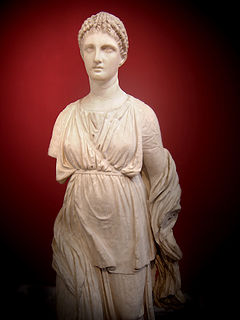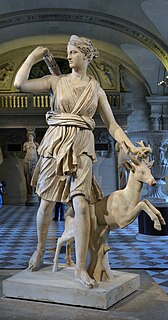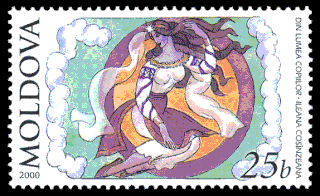 W
WAlma is an English feminine given name, but has historically been used in the masculine form as well, sometimes in the form Almo. The origin of the name is debated; it may have been derived from "alma mater" . It gained popularity after the Battle of Alma in the 19th century and appeared as a fashionable name for girls and a popular place name, but it has decreased in appearance in the 20th and 21st centuries. The name Alma also has several meanings in a variety of languages, and is generally translated to mean that the child "feeds one's soul" or "lifts the spirit".
 W
WAmalia is a female given name, derived from the Germanic word amal, meaning "work, activity", specifically the woman's name Amalberga. Its popularity is attributed to the Belgian Saint Amalberga of Maubeuge. The origins of the name Amalia have often been associated with those of Emilia and Emily, both of which in fact originate from the Latin nomen Aemilia, or with Amalthea, originate from the Greek name "tender goddess". In Greece, the name is celebrated on 10 July in honour of Saint Amalia.
 W
WBianca is a feminine given name. It means "white" and is an Italian cognate of Blanche.
 W
WDelia is a feminine given name, either taken from an epithet of the Greek moon goddess Artemis, or else representing a short form of Adelia, Bedelia, Cordelia or Odelia.
 W
WDiana is a feminine given name of Italian origin.Diana translates to Artemis from Latin.
 W
WDolores is a feminine given name of Spanish origin.
 W
WEva is a female given name, the Latinate counterpart of English Eve, derived from a Hebrew name meaning "life" or "living one". It can also mean full of life or mother of life. It is the standard biblical form of Eve in many European languages.
 W
WFatima, also spelled Fatimah, is a female given name of Arabic origin used throughout the Muslim world. Several relatives of the Islamic prophet Muhammad had the name, including his daughter Fatima as the most famous one. The literal meaning of the name is one who weans an infant or one who abstains.
 W
WFlavia is an Ancient Roman name meaning “blonde” from the Latin word “flavus”, meaning “golden, blonde”. It is a feminine form of the Roman family name Flavius. The name is most commonly used in Italy, Romania, Brazil and in Spanish-speaking countries. It is rarely used in the United States, but was given to 11 newborn American girls in 2010 and 12 American girls born in 2011.
 W
WGloria is the anglicized form of the Latin feminine given name gloriae, meaning immortal glory; glory, fame, renown, praise, honor.
 W
WIleana is a female given name. It is the feminine form of the male name Elijah. It has been adapted for Romanian, Bulgarian, Macedonian, Italian and Spanish. In Romanian it is a form of the name "Helen", and a hypocoristic for Ileana is Nuţi. In Romanian mythology, Ileana Cosânzeana is a mythological feminine figure represented as a beautiful good-natured princess, embodying the concept of feminine beauty. Ileana or Illeana may refer to:
 W
WIrene, sometimes written Irini, is derived from εἰρήνη, the Greek word for "peace". Eirene was the Greek goddess of peace. Irene was also the name of an 8th-century Byzantine empress, as well as the name of several saints.
 W
WIris is a feminine name. Its diminutive or pet form is Irie.
 W
WIsa is a classical Arabic name and a translation of Jesus. The name Isa is the name for Jesus in the Quran. However, it is not the only translation; it is most commonly associated with Jesus as depicted in Islam, and thus, commonly used by Muslims.
 W
WLana is a female given name and short name of multiple origins. It can be found most frequently in the English-speaking countries, former Yugoslavia, and as a short form of several Russian names such as Svetlana. Lana can also be derived from the Germanic name Alana or the Greek name Helen.
 W
WLaura is a female given name in Europe and the Americas, of Latin origin, whose meaning is a metonym for a victor, and an early hypocorism from Laurel and Lauren.
 W
WMagdalena is the original version of the given name Magdalene, and is used in West Slavic, Hungarian, German, Lithuanian, Dutch, Swedish, Norwegian, Spanish, Georgian, and among other languages.
 W
WMaya is a female name with multiple meanings:In Sanskrit Māyā means "illusion or magic", and is also an alternate name of the Hindu goddess Lakshmi.
 W
WMiriam is a feminine given name recorded in Biblical Hebrew, recorded in the Book of Exodus as the name of the sister of Moses, the prophetess Miriam.
 W
WNúria is a Catalan girls' name taken from the Virgin of Núria, a Marian shrine located in the eponymous valley, the Vall de Núria. The name also occurs in Spanish without the accent as Nuria, given that the Spanish name of the valley is el valle de Nuria. The placename, Núria, is believed to be of Basque origin according to Joan Coromines, and related to the word Norra, a variant of Andorra, and meaning "place between valleys."
 W
WRachel, meaning "ewe", is a feminine given name. It is best known as the name of Biblical Rachel.
 W
WRosalia is a feminine given name of Latin origin meaning "rose" and was the name of an early saint Saint Rosalia. In Latin, the Rosalia was a festival of roses celebrated variously throughout the Roman Empire.
 W
WSophia, also spelled Sofia, is a feminine given name, from Greek Σοφία, Sophía, "Wisdom". Diminutive forms include Sophie and Sofie. The given name is first recorded in the beginning of the 4th century. It is a common female name in the Eastern Orthodox countries. It became very popular in the West beginning in the later 1990s and became one of the most popularly given girls' names in the Western world during the 2010s.
 W
WVeronica is a female given name, the Latin transliteration of the Greek name Berenice, Βερενίκη, which in turn is derived from the Macedonian form of the Athenian Φερενίκη, Phereníkē, or Φερονίκη, Pheroníkē, from φέρειν, phérein, to bring, and νίκη, níkê, "victory", i.e. "she who brings victory".
 W
WVictoria is an Indo-European feminine first name. It is also used as a family name.
 W
WVirginia is a Germanic and Romance feminine given name derived from the Ancient Roman family name Verginius or Virginius, a name widely assumed to derive from the Latin word virgo, meaning "maiden" or "virgin." According to legend, Virginia was a Roman girl who was killed by her father in order to save her from seduction by the corrupt government official Appius Claudius Crassus.